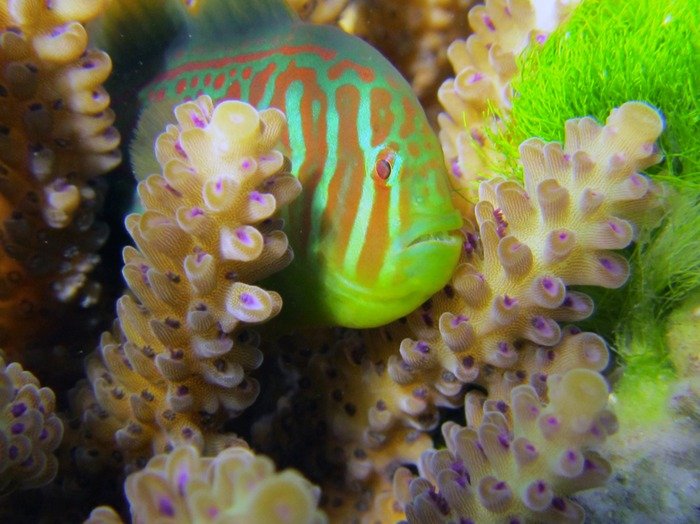ATLANTA, Nov. 9 (UPI) -- Corals attacked by toxic seaweed send out chemical calls for help to fish "bodyguards" that respond to trim back the poisonous seaweed, U.S. researchers say.
Scientists at the Georgia Institute of Technology said these "mutualistic" inch-long fish called gobies respond to the chemical signals from the coral in a matter of minutes.















